Environmentalists claim the reclamation of 14 hectares of mangrove land would block the mouth of the Dharamtar creek, which is the main source of water to the wetlands
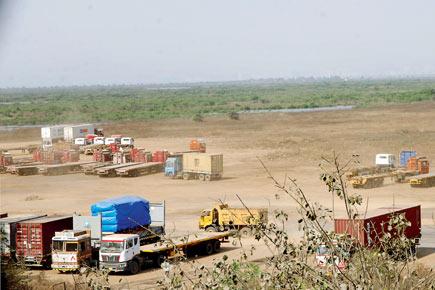
Several hectares of mangroves (seen in the distance) have been encroached upon due to refilling of land near Customs House at JNPT Port
Flamingos and mangroves at Uran might soon be a thing of the past. Environmentalists and nature lovers have raised concerns over the port expansion work underway at the Jawaharlal Nehru Port Trust (JNPT) area near Nhava Sheva. According to them the expansion project that includes reclamation of 14 hectares mangrove land at the North side of the existing port will eventually destroy wetlands spread over 300 hectares behind the JNPT Custom House.
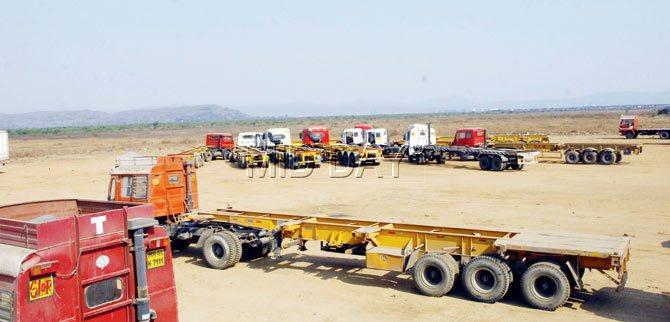
Wetland in trouble: The port expansion work has begun at the Jawaharlal Nehru Port Trust area near Nhava Sheva (above) and (below) the mangroves that will be affected. Pics/Suresh KK
ADVERTISEMENT
The reclamation work would block the mouth of the Dharamtar creek, which is the main water source for wetlands. “In the satellite image it’s clearly visible that the mouth of the creek will be filled. The 14 hectares of mangrove land is very near to the existing port. Upon completion of the 330-metre quay length expansion, it will completely block the mouth of the creek,” said Stalin Dayanand, an environmentalist associated with Vanashakti, a non-profit environment organisation based in Mumbai.
He added, “Authorities claim that the mangroves would not be affected. However, work is underway on the northern side that would eventually narrow down the creek and block its mouth.”
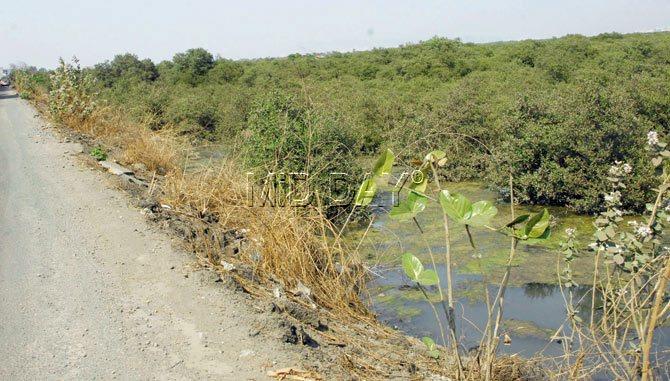
Manoj Das, superintendent at JNPT Custom House said, “Wetlands are a key factor in the global water cycle and in regulating local water availability and quality. Preliminary work of filling the wetland started two weeks ago. Eventually it will block the entry of creek water and affect the mangroves spread over 300 hectares.”
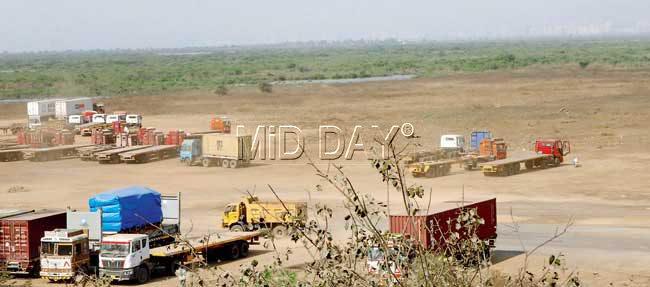
Several hectares of mangroves (seen in the distance) have been encroached upon due to refilling of land near Customs House at JNPT Port.Pic/ Suresh KK
However, NN Kumar, Chairman, JNPT, claimed that the port expansion project would not affect the mangroves. “The project would not have received environmental clearance if the mangroves would have been affected. We have received all the necessary clearances from the State and Central government,” he said.
What experts have to say?
Shankar Gajbhiye, scientist at National Institute of Oceanography, said, that mangroves play an instrumental role in the ecosystem. “Several birds and marine species depend on the wetlands. Mangroves act as a fertiliser to the water body. It’s a breeding ground for several fish to lay their eggs.
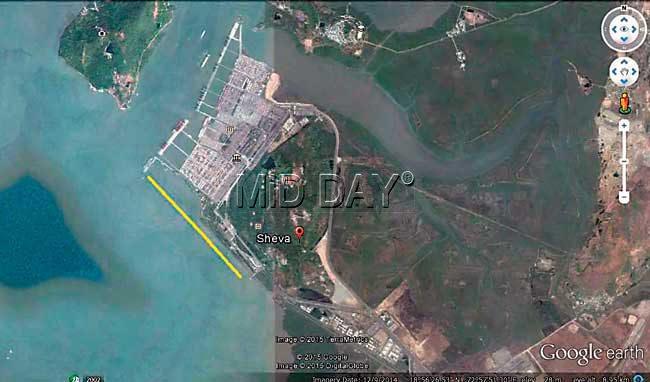
The yellow line indicates where the reclamation should have ideally taken place to preserve mangroves. The work, however, is underway on the opposite side
Further, the leaves of mangroves provide nutrients to the sea when they decompose.” Stalin explained that wetlands in Uran are the best in the entire state. “If the destruction continues then in next five years we won’t be able to spot flamingos and other migratory birds in the region. The number of flamingos coming to Uran wetlands has anyways reduced from lakhs to few thousands,” he added.
The filling of open spaces in nearby wetlands has also destroyed the fishing zone near Uran. Ramesh Koli, a local fisherman said, “Ever since the JNPT port has been constructed, the marine life near Uran has been drastically affected. Filling of mangroves in nearby areas for upcoming projects has destroyed the marine eco-system near JNPT.”
 Subscribe today by clicking the link and stay updated with the latest news!" Click here!
Subscribe today by clicking the link and stay updated with the latest news!" Click here!







